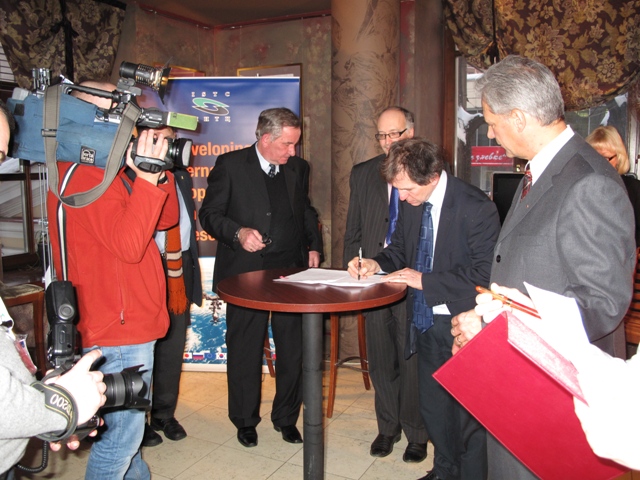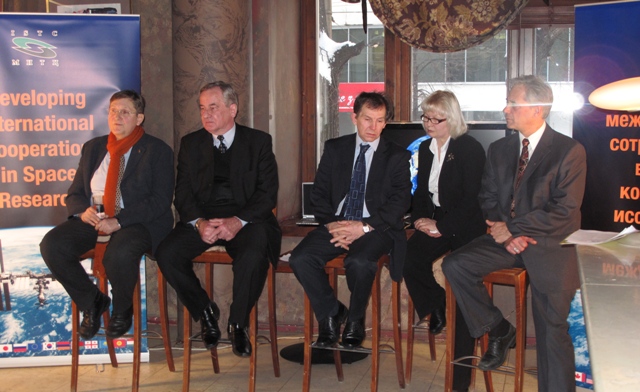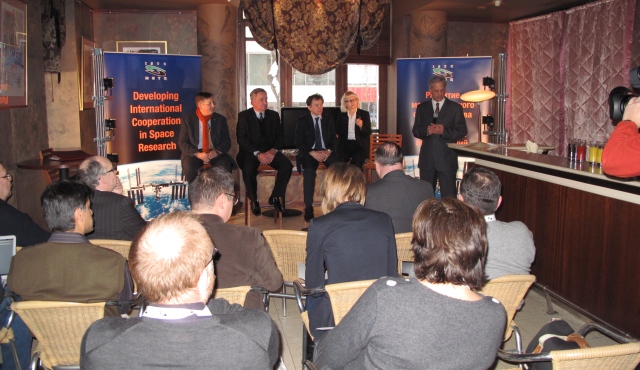A New Milestone in Russia-UK Collaboration in Space Research

On February 17th a tripartite Memorandum of Understanding was signed between UCL Mullard Space Science Laboratory, the Institute of Physics of the Earth and the International Science and Technology Center on future collaboration in the TwinSat Project that combines Russian and UK technologies to build new generation Earth observation satellites to monitor seismic activity such as earthquakes and volcanoes.
The joint project will offer real time monitoring of sensitive seismic areas such as Iceland and Kamchatka. The two planned satellites aim to investigate precursors to earthquakes and volcanic eruptions through effects in the upper atmosphere and will coordinate its observations with ground based facilities.
“This is a weakly studied area and it demands more serious considerations. If this project is successful, it will significantly enhance understanding of earthquake precursors and may lead to a new tool for their prediction. This project represents a new milestone in UK-Russia collaboration in space”, stated Alan Smith, Director of the UCL Mullard Space Science Laboratory.
Professor Vitaly Chmyrev from the Institute of Physics of the Earth (Russia) added that “we are very happy to see that this joint project is successfully moving forward towards receiving the required funding. This collaborative work will benefit both Russian and UK science in addition to making the earth a safer place.”
The project will be officially presented in the UK on March 16th at the conference Yury Gagarin’s Legacy – 50 Years On.
Read more on the Katerva prize nomination

Prof. Alan Smith, Director of the Mullard Space Science Laboratory signing the MOU

From left: Prof. Vadim Gushin (Institute of Biomedical Problems, Russia), Prof. Vitaly Chmyrev (Institute of Physics of the Earth, Russia), Prof. Alan Smith (Mullard Space Science Laboratory, UCL, UK), Galina Smirnova (interpretor, ISTC), Leo Owsiacki (ISTC Deputy Executive Director)


